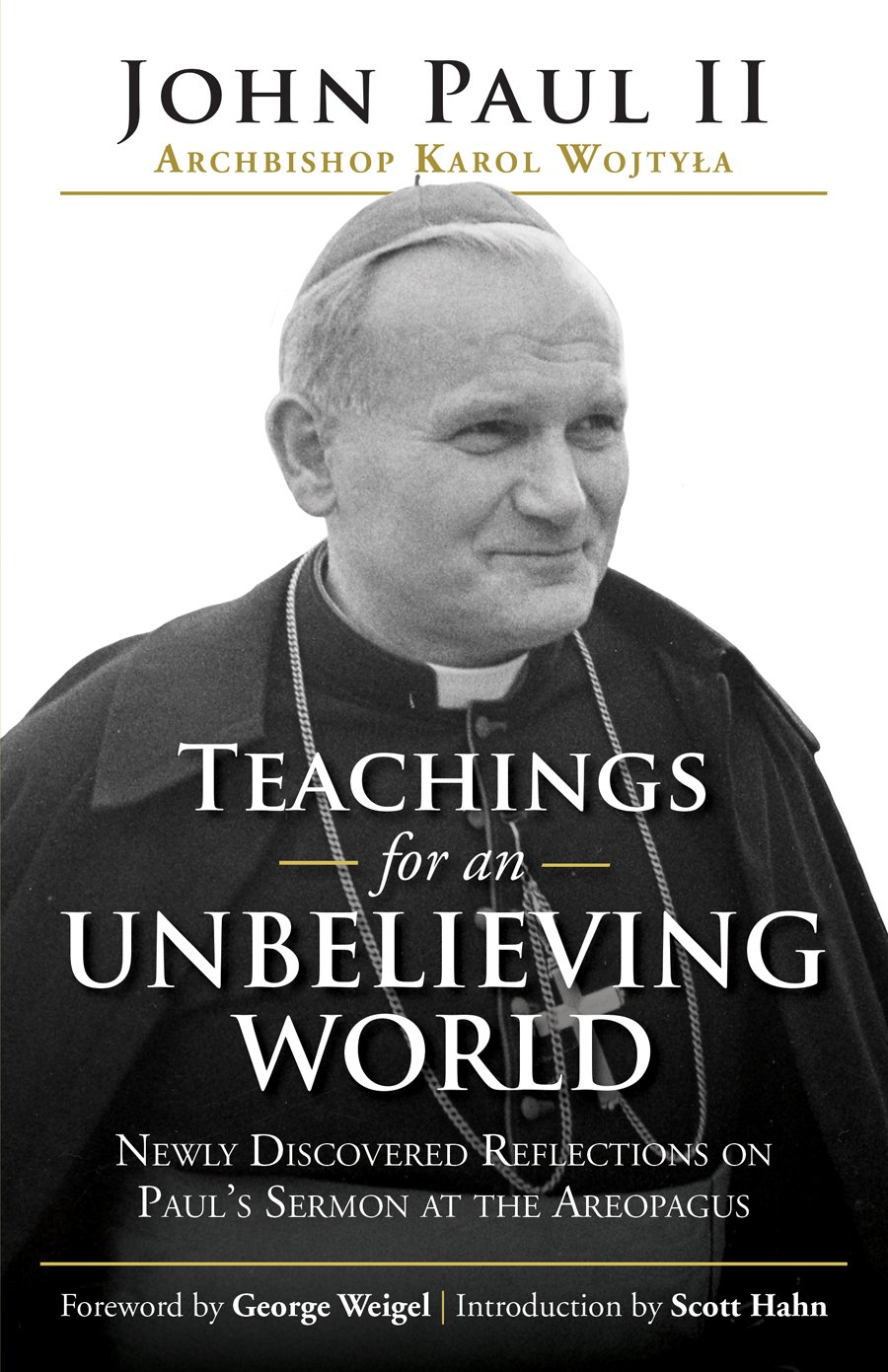
Lindsay Schlegel reviews a new book of reflections by St. John Paul II, just in time for his October 22 feast day.
I consider myself late to the game on the genius and beauty of the teachings of St. John Paul II, whose feast we celebrate this week. And yet I often feel that he’s quite close to me: my oldest son, Jacob Paul, has claimed the saint for his patron, and my parents celebrate their wedding anniversary on his feast day, October 22. So this week, we will celebrate!
The feast day festivities at our house consist of a dinner of pierogis and a dance party to this auto-tuned song with JPII’s voice. It’s also dessert night, and we would have Polish Papal Cream Cake if I could figure out how to make it without dairy or eggs (because, allergies). We’ll probably have ice cream instead.
For me, this feast will also be a time to give thanks for and continue to ponder the reflections on truth and freedom shared in a book published earlier this year called Teachings for an Unbelieving World: Newly Discovered Reflections on Paul’s Sermon at the Areopagus.

As I learn more about the Church as an adult, I continue to be amazed at how consistent human nature is throughout the centuries. Part of me wonders why we haven’t figured out more about love, mercy, and forgiveness by now. But another part is comforted by the reality that despite how hard the times may seem in any given era, God is always with us. He understands us. He loves us. We are all His children, and He has a plan for each of us.
This focus on how and why we were created is pivotal to St. John Paul II’s teachings on truth and freedom. I love that in these thirteen reflections on Acts 17:16-34, he confidently presents the relevance of these matters for the people St. Paul spoke to in his time as well as for contemporary Catholics. Written in the mid 1960s, these pieces could just as easily have been written today, they are so profound and powerful.
I want to share a few lines from the third reflection, “The Human Being and Truth,” that struck me:
Through reason, all existence is given to humankind in truth: as truth. ... Therefore it must be said that in the intellect-reason the human being has been given all that exists (in whatever form): all that is created, the universe, and even God. (p. 22)
Humanity’s relationship with God — and consequently with creatures — is a relationship in truth and matures in listening to this Word. ... We need not fear this word: the disposition to listen to the Truth (that is, obedience) and the readiness to act in Truth constitute the true dignity of the human person. (p. 23)
It’s deep. It takes a little mental effort to get into if you’re used to Internet sound bytes. But it’s realer and truer than anything else I’m likely to read today (apart from the Gospels, of course).
If you are feeling down about the state of the world, I’d encourage you to spend some time with these pages. And don’t skip the foreword by George Weigel and introduction by Scott Hahn! Unless you’re already a JPII scholar, these sections will help to give necessary context for the pages that follow.
Life is a strange state of busy and slow these days, and for me, taking the time to chew on the deep truths within this book is helping to keep perspective on who I am and, God willing, where I’m going.
Are you planning to celebrate this feast day?
Which of Pope St. John Paul II’s writings would you choose to discuss over dinner?
Copyright 2020 Lindsay Schlegel
About the Author

Lindsay Schlegel
Lindsay Schlegel is a daughter of God, wife, mom, editor, and speaker. She’s the author of Don’t Forget to Say Thank You: And Other Parenting Lessons That Brought Me Closer to God and host of the podcast Quote Me with Lindsay Schlegel. Lindsay seeks to encourage, inspire, and lift others up to be all they were created to be. Connect with Lindsay at her website, LindsaySchlegel.com.


.png?width=1806&height=731&name=CatholicMom_hcfm_logo1_pos_871c_2728c%20(002).png)
Comments